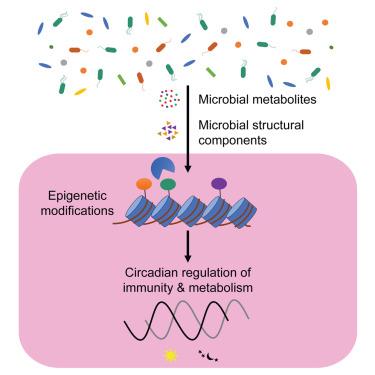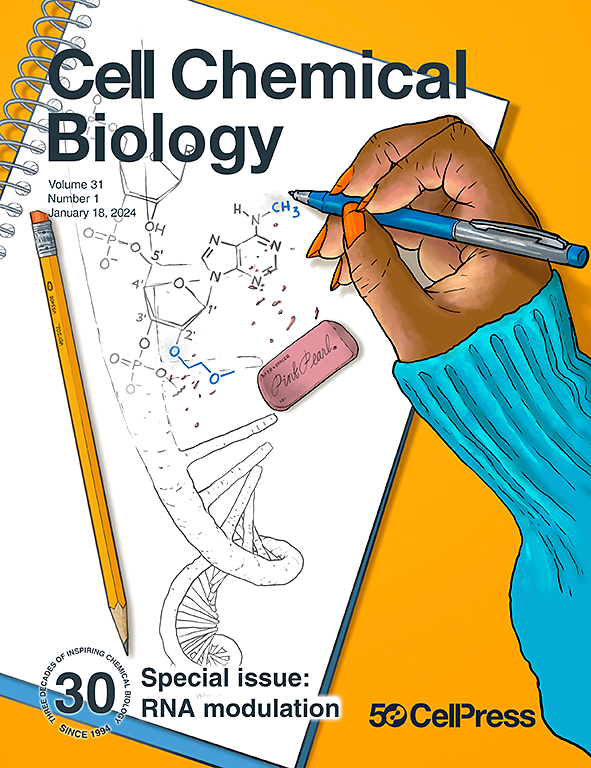Chemical interplay between gut microbiota and epigenetics: Implications in circadian biology
IF 6.6
1区 生物学
Q1 BIOCHEMISTRY & MOLECULAR BIOLOGY
引用次数: 0
Abstract
Circadian rhythms are intrinsic molecular mechanisms that synchronize biological functions with the day/night cycle. The mammalian gut is colonized by a myriad of microbes, collectively named the gut microbiota. The microbiota impacts host physiology via metabolites and structural components. A key mechanism is the modulation of host epigenetic pathways, especially histone modifications. An increasing number of studies indicate the role of the microbiota in regulating host circadian rhythms. However, the mechanisms remain largely unknown. Here, we summarize studies on microbial regulation of host circadian rhythms and epigenetic pathways, highlight recent findings on how the microbiota employs host epigenetic machinery to regulate circadian rhythms, and discuss its impacts on host physiology, particularly immune and metabolic functions. We further describe current challenges and resources that could facilitate research on microbiota-epigenetic-circadian rhythm interactions to advance our knowledge of circadian disorders and possible therapeutic avenues.


肠道微生物群与表观遗传学之间的化学相互作用:对昼夜节律生物学的影响
昼夜节律是使生物功能与昼夜周期同步的内在分子机制。哺乳动物肠道内有大量微生物,统称为肠道微生物群。微生物群通过代谢物和结构成分影响宿主的生理机能。其中一个关键机制是调节宿主的表观遗传途径,尤其是组蛋白修饰。越来越多的研究表明,微生物群在调节宿主昼夜节律方面发挥作用。然而,其中的机制在很大程度上仍不为人所知。在此,我们总结了有关微生物调控宿主昼夜节律和表观遗传途径的研究,重点介绍了有关微生物群如何利用宿主表观遗传机制调控昼夜节律的最新发现,并讨论了其对宿主生理,尤其是免疫和代谢功能的影响。我们进一步介绍了当前的挑战和资源,这些挑战和资源可促进微生物群-表观遗传-昼夜节律相互作用的研究,从而增进我们对昼夜节律紊乱的了解和可能的治疗途径。
本文章由计算机程序翻译,如有差异,请以英文原文为准。
求助全文
约1分钟内获得全文
求助全文
来源期刊

Cell Chemical Biology
Biochemistry, Genetics and Molecular Biology-Molecular Medicine
CiteScore
14.70
自引率
2.30%
发文量
143
期刊介绍:
Cell Chemical Biology, a Cell Press journal established in 1994 as Chemistry & Biology, focuses on publishing crucial advances in chemical biology research with broad appeal to our diverse community, spanning basic scientists to clinicians. Pioneering investigations at the chemistry-biology interface, the journal fosters collaboration between these disciplines. We encourage submissions providing significant conceptual advancements of broad interest across chemical, biological, clinical, and related fields. Particularly sought are articles utilizing chemical tools to perturb, visualize, and measure biological systems, offering unique insights into molecular mechanisms, disease biology, and therapeutics.
 求助内容:
求助内容: 应助结果提醒方式:
应助结果提醒方式:


